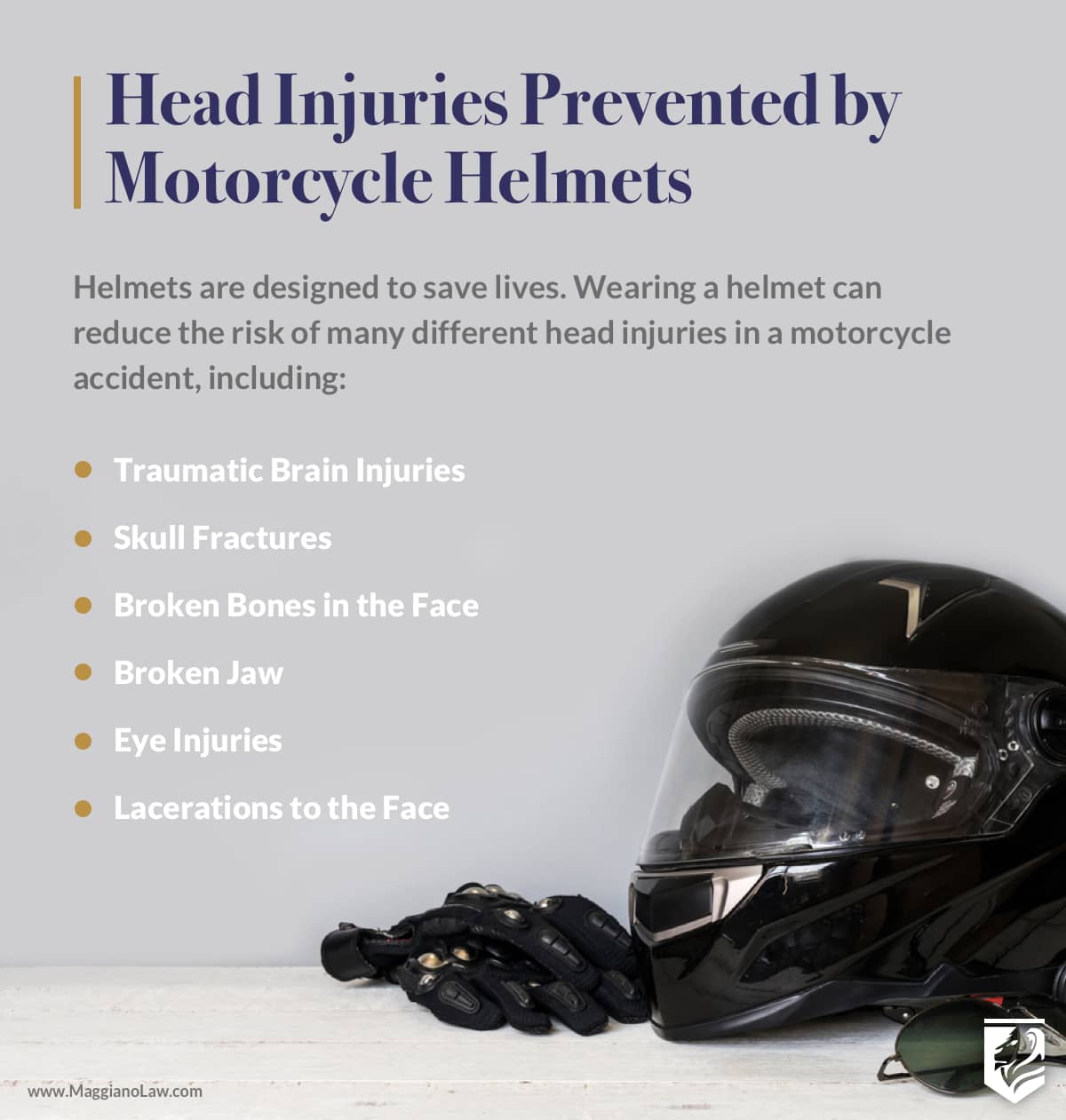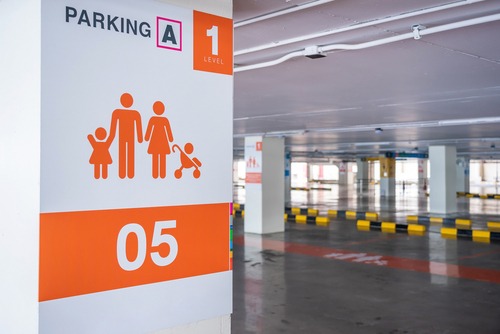
Can I Recover Damages for a Motorcycle Accident Without a Helmet?
On average, more than 65 people in New Jersey are killed in motorcycle accidents each year. Many more motorcyclists and passengers suffer serious and sometimes permanent injuries that change their lives forever.
Helmet use is crucial for reducing the incidence of serious injury and death in motorcycle accidents. Wearing a helmet is also the law. The text of the New Jersey Helmet Law (P.L. 39:3-76.7) reads:
“No person shall operate or ride upon a motorcycle unless he wears a securely fitted protective helmet of a size proper for that person and of a type approved by the federal DOT. Such a helmet must be equipped with either a neck or chin strap and be reflectorized on both sides.”
Riders not wearing a helmet at the time of a motorcycle accident are in violation of this law. However, if the accident was someone else’s fault, are they also barred from recovering compensation?
Whether or not you can recover damages after a motorcycle accident when you weren’t wearing a helmet may be complicated. The motorcycle accident attorneys at Maggiano, DiGirolamo & Lizzi can review your legal options.

Liability for Motorcycle Accidents Where the Rider Wasn’t Wearing a Helmet
The New Jersey Helmet Law is a motor vehicle and traffic regulation. Although riders who operate a motorcycle without a helmet are acting unlawfully, the law does not automatically assign liability for an accident to the helmet-less motorcyclist.
Rather, the key consideration in such a case often comes down to: Who is more responsible for the motorcyclist’s injuries?
When the rider is not wearing a helmet at the time of the crash, answering this question can be challenging. After all, helmets can reduce the risk of many different injuries in a motorcycle accident, including:
- Traumatic brain injuries
- Fractures of the skull, bones in the face, the jaw, and vertebrae in the neck
- Eye injuries
- Lacerations to the face and neck
- Injury to soft tissues in the neck, such as ligaments, tendons, etc.
- Spinal cord injuries (specifically injuries to the cervical spine, or the portion of the cord localized in the neck)
Of course, helmets can’t prevent all injuries. Trauma to the chest, arms, and lower extremities can occur even when a motorcyclist wears a helmet.
With this in mind, the following scenarios may apply in assessing the likelihood of recovery in your motorcycle accident claim:
- Wearing a helmet, but no head or neck injury: The helmet will be irrelevant to your injury claim in a case like this. However, wearing a helmet shows that you are a responsible, law-abiding rider, which reflects favorably on you as the victim in the accident.
- Not wearing a helmet, no head or neck injury: This is still a case in which the helmet will be irrelevant to recovery in your claim. Nonetheless, the liable party may point out that you were not wearing a helmet at the time of the accident, implying negligence on your part.
- Wearing a helmet with head or neck injury: In this claim, the helmet is a vital piece of information. Your decision to wear a helmet may save your life and shows that you obey the law, making it more difficult for the defense to dispute liability for your injuries.
- Not wearing a helmet with head or neck injury: It will be extremely difficult to recover damages for injuries to the head, face, and/or neck if you were not wearing a helmet and your state requires it by law. A motorcyclist could endure the difficult task of attempting to prove that the injury would have occurred even with a helmet, but obtaining full compensation will be next to impossible in most situations.
Ultimately, motorcycle accident claims in which the rider had no helmet revolve around the issue of comparative negligence. Some share of fault must be assigned to the motorcyclist who does not wear a helmet when state law requires it. How much of the fault rests with the rider will directly impact recoverable damages.
How Comparative Negligence Applies in Motorcycle Accident Claims
The threshold for comparative fault in New Jersey is 50 percent. If you and the other driver are equally responsible for the accident, you can still recover up to one-half of the damages you sustained.
Even if a motorcyclist exercises all due care when riding and he or she can’t be blamed for causing the accident, comparative negligence will likely be at issue when the rider fails to wear a helmet. The location of the injuries will be crucial in evaluating the level of negligence on the part of the motorcyclist.
For example, say you were riding your motorcycle on the highway without a helmet when another driver, who was distracted at the time, swerved into your lane and hit you. If you suffered a broken arm, a broken ankle, and road rash, you could certainly have a personal injury claim against the distracted driver – and have a good chance of collecting damages.
In this case, the use of a helmet would not have prevented your injuries. As a result, negligence on your part (i.e., not wearing a helmet) would be minimal.
Now, say the rider was involved in the exact same accident but suffered head and neck injuries. In this case, a personal injury claim would be much harder to bring and win.
The insurance company can and certainly will argue that, by violating the law and not wearing a helmet, the motorcyclist in this case bears a significant amount of responsibility for their injuries. Comparative negligence will reduce the compensation the rider may be able to recover – potentially past the threshold where damages can be recovered at all.
Insurance companies may cite the failure to wear a helmet as justification for denial of a motorcycle accident claim – even when injuries to the head and neck did not occur. When faced with this situation, it is important to contact a motorcycle accident attorney promptly.
Find Out If You Have a Motorcycle Accident Claim
Helmets are designed to save lives. That is why so many states (including New Jersey) have instituted laws requiring their use when riding a motorcycle.
Unfortunately, the severity of a crash between a motorcycle and another vehicle can lead to injuries that even the strongest helmet cannot prevent. Although it is challenging to recover compensation in a motorcycle accident claim if you were not wearing a helmet, it is nonetheless crucial to have a full understanding of your legal rights and options.
Maggiano, DiGirolamo & Lizzi can help. Our attorneys have achieved significant results on behalf of injured motorcyclists, and we will explore all options for recovery of damages in your case.
Please contact Maggiano, DiGirolamo & Lizzi at (201) 585-9111 today for a free case evaluation. Our motorcycle accident attorneys serve riders in Fort Lee and all of New Jersey.


















